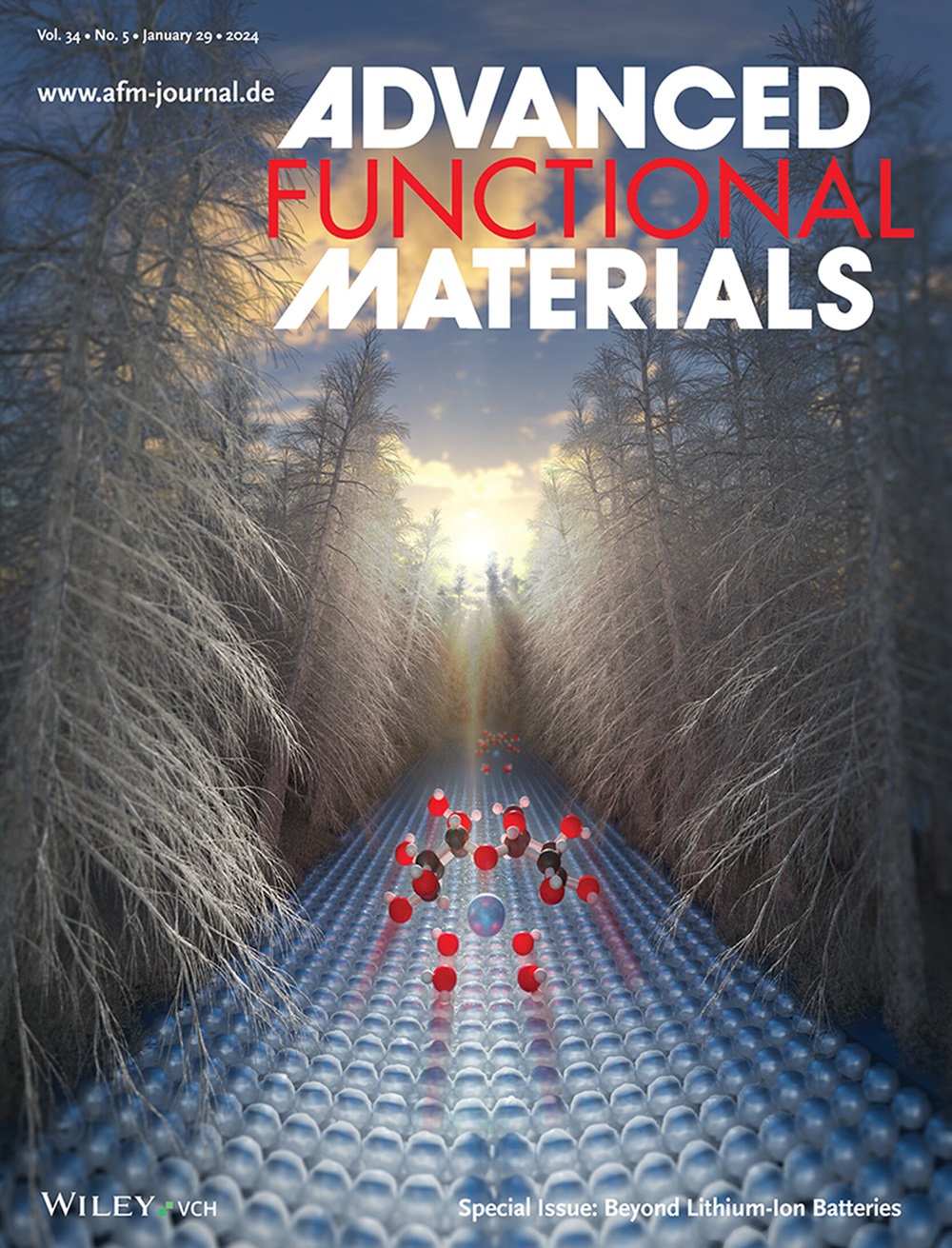A Fabric‐Based Multimodal Flexible Tactile Sensor With Precise Sensing and Discrimination Capabilities for Pressure‐Proximity‐Magnetic Field Signals
IF 18.5
1区 材料科学
Q1 CHEMISTRY, MULTIDISCIPLINARY
引用次数: 0
Abstract
Currently, flexible tactile sensors integrating proximity‐pressure sensing encounter challenges in efficient multisignal acquisition, accurate recognition, cost control, and scalability. Herein, a fabric‐based multimodal flexible capacitive sensor (MFCS), combining an integrated fabric electrode design with a magnetic tilted micropillars (MTM) array microstructure, is developed. This innovative design significantly enhances the sensor's fringing effect, magnetic responsiveness, and dielectric layer's deformation ability, enabling precise perception of pressure, proximity, and magnetic field changes. The MFCS demonstrates high sensitivity and rapid response characteristics, achieving a sensitivity of 0.146 kPa⁻¹ under 0–2 kPa pressure with response/recovery times of ≈12/24 ms. Moreover, it detects hand proximity within a 20 cm range, with a sensitivity of −0.039 cm⁻¹ in the 0–2 cm range, and a magnetic field detection limit of 10 mT, showing a sensitivity of −1.72 T⁻¹ in the 60–230 mT range. The sensor operates effectively in both capacitance and resonant frequency modes, distinguishing different signals, thus offering new possibilities for smart wearable devices and interactive systems. Overall, the MFCS features multimodal sensing, a fully fabric structure, cost‐effectiveness, and ease of fabrication, making it promising for human–computer interaction, artificial intelligence, and health monitoring.一种基于织物的多模态柔性触觉传感器,具有对压力-接近-磁场信号的精确感知和识别能力
目前,集成近压传感的柔性触觉传感器在高效多信号采集、准确识别、成本控制和可扩展性等方面面临挑战。本文开发了一种基于织物的多模态柔性电容传感器(MFCS),将集成织物电极设计与磁倾斜微柱(MTM)阵列微观结构相结合。这种创新的设计显著提高了传感器的边缘效应、磁响应性和介电层的变形能力,能够精确感知压力、接近度和磁场变化。MFCS具有灵敏度高、反应速度快的特点,在0-2 kPa压力下的反应灵敏度为0.146 kPa⁻¹,反应/恢复时间为≈12/24 ms。此外,它在20厘米范围内检测手的距离,在0-2厘米范围内的灵敏度为- 0.039厘米⁻¹,在60-230厘米范围内的磁场检测极限为10 mT,灵敏度为- 1.72 T⁻¹。该传感器可在电容和谐振频率模式下有效工作,可区分不同的信号,从而为智能可穿戴设备和交互系统提供新的可能性。总体而言,MFCS具有多模态传感、完整的织物结构、成本效益和易于制造的特点,使其在人机交互、人工智能和健康监测方面具有前景。
本文章由计算机程序翻译,如有差异,请以英文原文为准。
求助全文
约1分钟内获得全文
求助全文
来源期刊

Advanced Functional Materials
工程技术-材料科学:综合
CiteScore
29.50
自引率
4.20%
发文量
2086
审稿时长
2.1 months
期刊介绍:
Firmly established as a top-tier materials science journal, Advanced Functional Materials reports breakthrough research in all aspects of materials science, including nanotechnology, chemistry, physics, and biology every week.
Advanced Functional Materials is known for its rapid and fair peer review, quality content, and high impact, making it the first choice of the international materials science community.
 求助内容:
求助内容: 应助结果提醒方式:
应助结果提醒方式:


